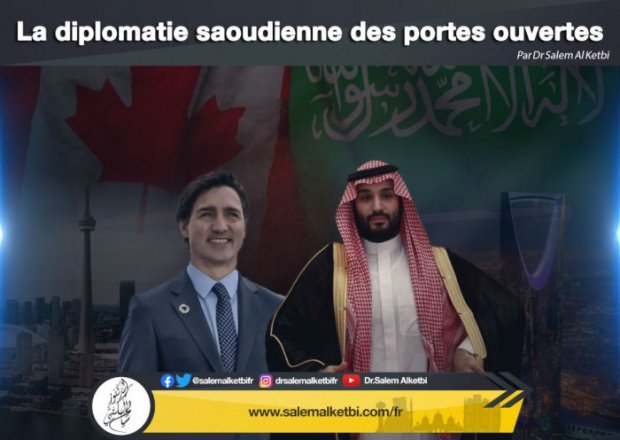Saudi Arabia’s recent foreign policy orientations can best be described as a strategy to open the doors of cooperation with everyone. It is not just about “reducing problems to zero”, which involves addressing existing points of disagreement with other parties and finding solutions and settlements.
On the other hand, the act of opening doors seems to be larger and far reaching. It is about establishing channels of communication and dialogue, even in the face of existing disagreements, in the hope that such engagement will pave the way for the resolution of conflicts and any problems in relationships with others. regional and international entities.
By resuming diplomatic relations with Canada, Saudi Arabia has shown its latest proactive foreign policy at this level, ending a long-standing dispute that has persisted for about five years (since 2018). Throughout this period, trade, economic and educational ties between the two nations experienced a noticeable downturn.
The official announcement of the resumption of relations between the Kingdom of Saudi Arabia and Canada came following a meeting in Bangkok on the sidelines of the APEC summit in November the previous year. The meeting involved the Saudi Crown Prince, Prince Mohammed bin Salman, and the Prime Minister of Canada, Justin Trudeau. They mutually agreed to this measure.
This recent step taken by the Kingdom signifies its willingness to transform its development and economic aspirations into concrete and prioritized action plans.
Today, in Saudi Arabia, no voice resonates louder than that of construction, which symbolizes the resumption of the civilizational march of the Kingdom. This resurgence aims to restore Saudi Arabia to its rightful place among nations and states, in the fields of economy, politics, investment, culture and sport. We are witnessing this manifestation in various spheres, and the world community is following with impatience and fervor the news of the Kingdom, while admiring and valuing these rapid and substantial changes.
Everyone has been touched by the messages conveyed by Saudi diplomacy over the past few years, emphasizing the imperative to respect its national sovereignty and refrain from interfering in its internal affairs. In addition, adherence to the principle of good neighborliness, as well as other international principles and rules, was emphasized.
Current developments, be it the resumption of relations with Iran, Turkey, Canada or any other external issue, testify to this new and constructive approach to fostering cooperative relations with other nations. , whether they are neighbors or not. These relationships are based on well-defined, mutually reinforcing principles. This solid and transparent foundation serves as a safeguard against any potential slide into errors and harmful practices that have already led to tensions, ruptures and crises.
At this point, it is of the utmost importance that Saudi diplomacy presents the crucial criterion that defines its relations with all countries of the world, namely mutual respect and shared interests. No entity can interfere in the internal affairs of another, nor can interests be exploited to mask such interference, no matter how large and important those interests are.
This norm is of great importance, and its emphasis does not imply the introduction of a new element to the principles and regulations that have governed the Kingdom’s foreign policy since its creation. From the outset, Saudi foreign policy has been anchored and centered on the principles, laws, treaties and international norms that form the framework of the United Nations and all collaborative international institutions. So there are Saudi rules and standards.
Nevertheless, due to the interaction within the global system, there are recognized instances of violations and breaches. The reasons and conditions underlying these cases are widely recognized and all relate to the principle of state sovereignty or national sovereignty.
As the Kingdom embarks on a new era of international relations, it is determined to restore the foundations and principles it deems essential to foster fair, impartial and genuine relations with all nations of the world. Among these principles, mutual respect occupies a prominent place. One of the main operational practices embodying mutual respect is to refrain from interfering in the affairs of other countries.
There is no doubt that the principle of national sovereignty is one of the most important principles of international law. The Charter of the United Nations, in its article 2 (paragraph 1), explicitly states: “The Organization is founded on the principle of the sovereign equality of all its Members”.
Various declarations issued by the international organization strongly emphasize the imperative nature of the principle of non-interference, in particular the declaration issued on December 6, 1981, which explicitly states that, in accordance with the Charter of the United Nations, no State has the right to intervene directly or indirectly, under any circumstances, in the internal or external affairs of another State.
The idea that the principle of sovereignty constitutes one of the cornerstones of international relations dates back to the Peace of Westphalia in 1648. This principle is one of the cornerstones of international law and plays a fundamental role in the elaboration of the state theory in contemporary political discourse.
Now, in line with Vision 2030, the development of modern Saudi Arabia is advancing through a strategic plan that ensures the Kingdom harnesses its abundant capabilities and resources. This allows it to take its rightful place in the evolving world system during the current phase. Ongoing interactions on the international stage play a central role in guiding its trajectory and shaping its final shape.
This article is originally published on agoravox.fr




